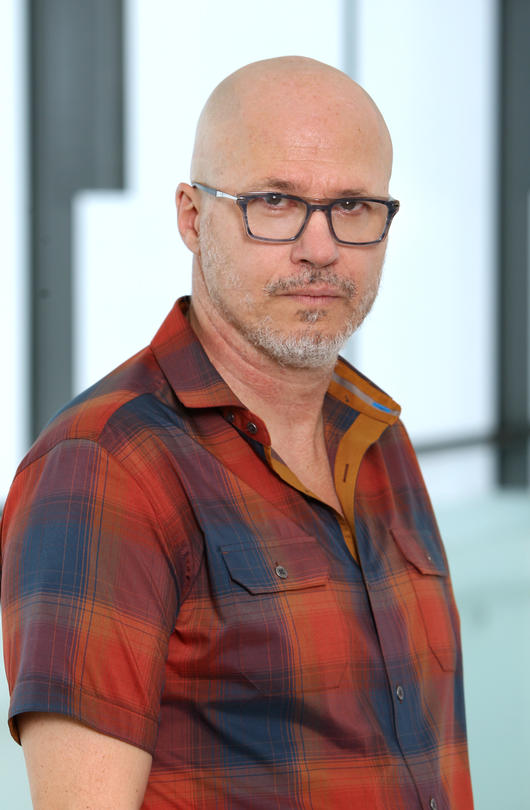Migration, Displacement and Adaptation: Aleksandar Hemon’s Journey as a Refugee

Creative writing professor Aleksandar Hemon’s life was upended by war. In 1992, he was a 27-year-old journalist on an international visitors’ program in the United States when war broke out in his homeland of Bosnia.
“It’s the defining event of my life,” Hemon said. With Sarajevo under siege, he stayed with friends in Chicago, worked on his English, and eventually decided to make the United States his home.
Hemon went on to write several acclaimed books in English, including, most recently, The World and All That It Holds, which won France’s 2023 Grand Prix de Littérature Américaine. Hemon was the 2003 recipient of a Guggenheim Fellowship and won a “genius grant” from the MacArthur Foundation in 2004.
Hemon spoke with Princeton Int’l about his displacement, current conflicts, and migration and xenophobia.
When you realized your stay in the United States was going to be longer than planned, what did you do?
I started working for Greenpeace, canvassing door-to-door in the Chicago suburbs. In retrospect, it was useful for a writer to talk to people every day. People would invite me in, ask me where I was from, and spontaneously tell stories. I like stories. I realized I wouldn’t be able to write in my native language because I was cut off by war. I figured the way to learn the English language was to read a lot, so I read a lot, and I went to graduate school and got a master’s degree in English literature at Northwestern.
For most of my life, I’ve lived away from my home space, so to speak. It defines the way I see the world. I wasn’t in the war. I don’t know how war works. But I know how displacement works.
You finished your first story in English in 1995. Five years later, your first book of stories, The Question of Bruno, was published. Why did you create characters who were struggling with displacement?
For most of my life, I’ve lived away from my home space, so to speak. It defines the way I see the world. I wasn’t in the war. I don’t know how war works. But I know how displacement works. Acquiring a new mind in a new language — it’s all conditioned on an act of war for me. That’s why war is always present in my work.
In fiction, I have an amplified sense of agency. My characters often find themselves in situations similar to mine. Human beings strive toward a space for more agency. That’s why people move around the world, cross the sea, or move to a place where they can have more agency. This is our struggle as humans.
How does your experience of displacement influence your thinking about the current conflicts in the world?
My most recent book, The World and All That It Holds, begins in Sarajevo when the archduke is assassinated, which started World War I. On June 28, 1914, most of the planet was governed by four empires: Ottoman, British, Russian, and Austrian-Hungarian. That had lasted for hundreds of years. It was a social order that everyone thought was eternal. Within five years, three of those empires are gone without a trace. Only the British survived.
We are making a terrible mistake, conceptually, thinking that whatever is happening is happening gradually and that it will sort itself out. This is where fiction can help. Everyone operates with continuity bias: Everything will continue as is. For me — not only because I’m a Bosnian, but also because I’m a fiction writer — I can imagine the bottom falling out. Five years before the Bosnian War, it didn’t look good, but we thought we would sort it out. Who would want to destroy everything?
Why do you think migration has become a source of tension in many countries and a rallying cry for some political parties?
One of the points of acceleration in the rise in fascism is an increase in xenophobia toward migrating people. But the basis of all human culture is helping others in need. There would be no humans at all if there weren’t migration.
Neanderthal bones that were recently discovered in Spain belonged to a child who had Down syndrome. He was 6 years old. The Neanderthals did not kill the weak one. They took care of the child. It’s in human evolution to help those who need help.
